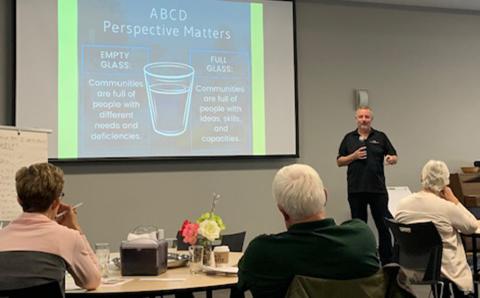Baseball in the U.S. has been shrinking in popularity ever since its primary broadcast platform switched from radio to television. The biggest complaints about the sport are that the game is too slow and too boring—things Major League Baseball has recently tried to address with rules changes. But while “America’s pastime” has been faltering for the past six decades, you wouldn’t have known this trend growing up in a Dominican home as I did. In our home, bèisbol was more than a game. It was a way of life.
I remember watching baseball games with my dad and my sister in the evenings. My dad knew when it was time to take the starting pitcher out of the game, when was the most opportune moment to steal a base, and when it was time to swing for the fences. He could also point out the strategic moves and miscues of the managers throughout the game. As a child, I just couldn’t understand how my dad knew what was going to happen before it happened.
My dad never studied past the eighth grade in the Dominican Republic, and yet he eventually learned how to speak English. I once asked my dad how he learned English after he immigrated to New York in 1962. His answer was simple: “Baseball!” Because he knew the game so well, he could put together what the English-speaking broadcasters were saying about the action on the field. That’s incredible!
When I became an adult, though, I too believed that baseball was dying—until I took my dad to see the Dominican team play against Nicaragua at the World Baseball Classic in the spring of 2023.
Some have called this tournament the greatest week in baseball. In this year’s competition, there were 20 different teams from all over the world—from Japan to Puerto Rico, from Nicaragua to Israel—playing for the pure love of the game and for the honor of representing their home countries.
I don’t think I have ever experienced so much joy and exhilaration at a baseball game. It’s hard to describe what I witnessed in that stadium in Miami. The enthusiasm was spectacular, and the energy was inexplicable. Every time the camera panned to the stands, someone was dancing. The Dominican fans were even cheering for the Nicaraguan team when they did well. I even saw one outfielder signing autographs through the fence during a pitching change.
Returning to the game of my childhood taught me a valuable lesson about the kingdom of God. One thing I realized is that faster isn’t always better. In a world with Instagram posts and Instacart deliveries, we’ve grown accustomed in the church and in the Christian life to expect immediate results. But slowing down affords us more time to celebrate what God is doing in the present.
The parables of Jesus teach us that the kingdom of God grows slowly but surely. A commitment to making disciples and being a disciple is not a fly-by-night operation. In fact, it’s something that very much resembles a nine-inning baseball game. Discipleship is a long and arduous process that includes what appear to be many scoreless innings, and it’s this one-pitch and one-base-at-a-time approach that reminds us that Jesus wants us to keep running the race until our feet touch home base.
About the Author
Felix Fernandez is pastor of South Kendall Community Church Miami, FL.









